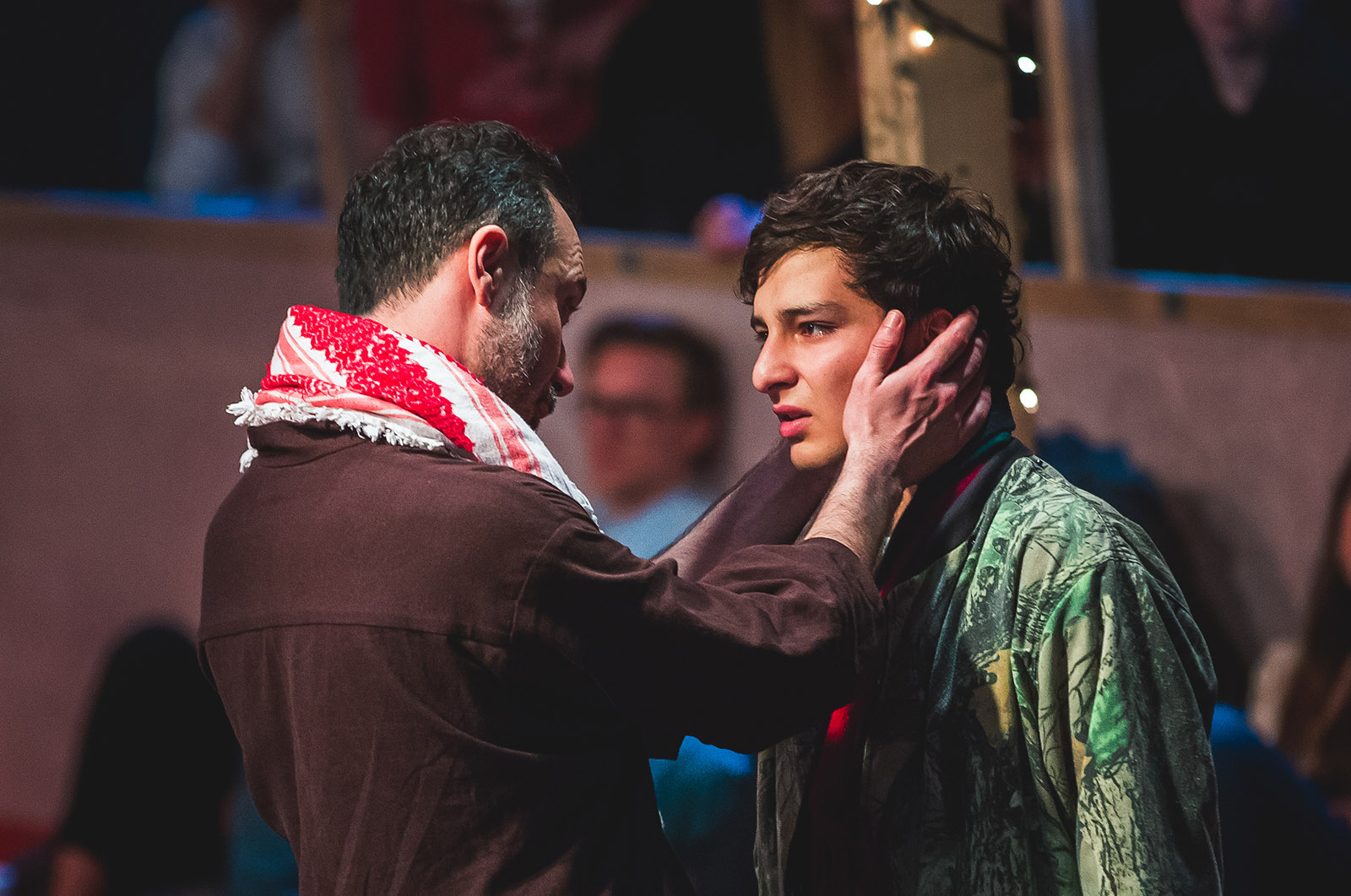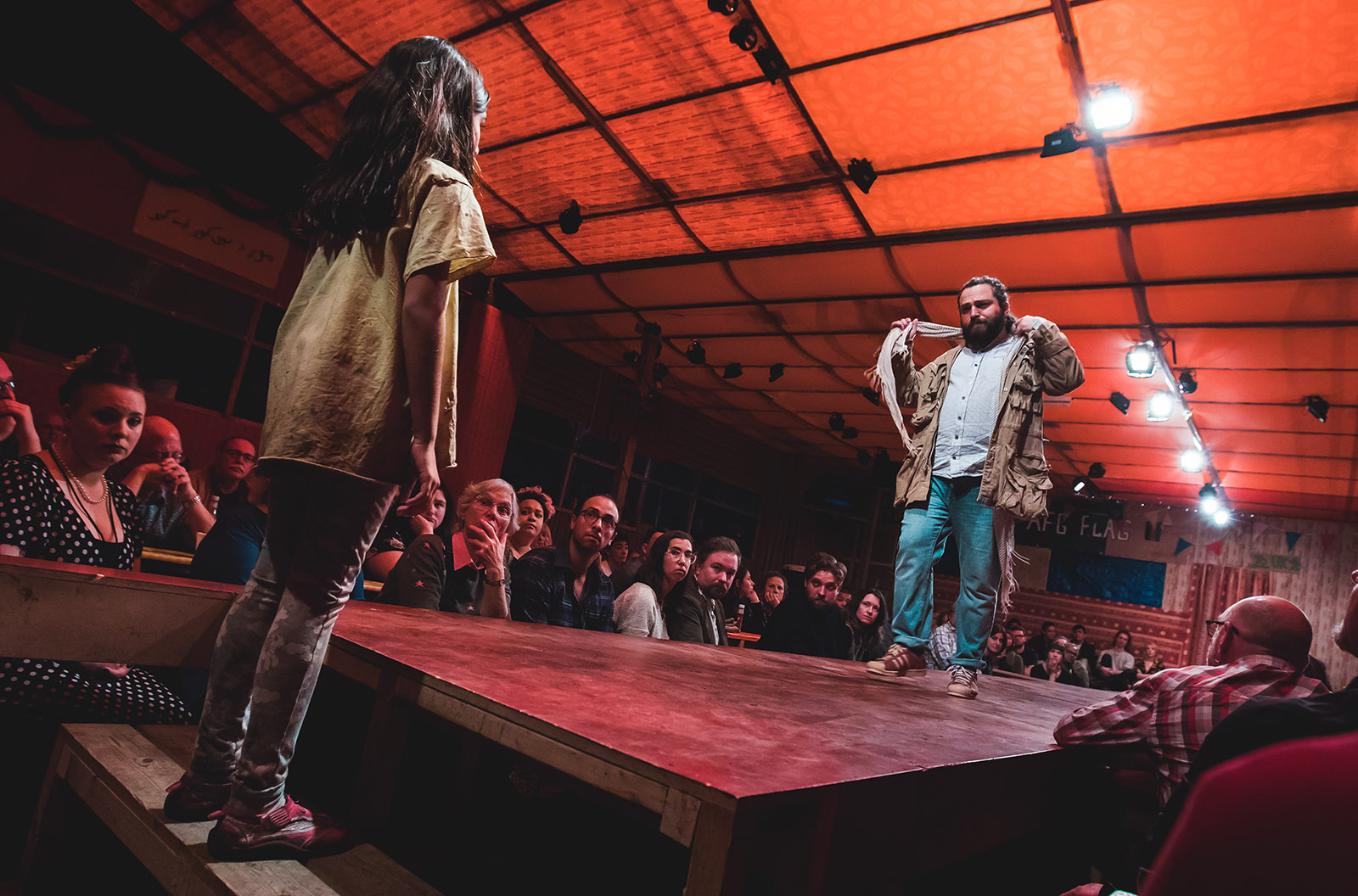The photograph of the little boy in a red T-shirt, face down on the sand as the swash of the Mediterranean brushed against him, was seared in our minds through the fall of 2015. The body of Alan Kurdi, aged three, had washed ashore near Bodrum, Turkey, after the inflatable boat he and his family were aboard capsized. These Syrian refugees were trying to reach Europe, on a journey of projected desire that had mapped out Canada as its final destination. Alan was drowned, along with his mother and brother. Only his father survived.
The photograph generated an international outcry, and for as long as it captured media attention and the public’s imagination, it sparked an uptick in concern about the refugee crisis. According to estimates, by that point more than half of Syria’s population needed humanitarian assistance. Some six million Syrians were internally displaced, and almost five million had fled abroad. At the northernmost tip of France, near Calais, overlooking the Strait of Dover, the photograph of Alan circulated in a refugee and migrant camp that had come to be known as “The Jungle.” For many of its roughly 8,000 residents—refugees from all corners of a strife-torn world—the photograph brought back a tide of tormenting memories, of their own near-death experiences, or of loved ones lost in equally horrific ways. Survival was its own handicap, and those in the camp carried the trauma, the grief, and, most often, a haunting guilt that came with having made it there alive.
This way-station on French territory did not mean deliverance. Most of those there hoped to reach the United Kingdom—in part for its reputedly more lenient approach toward immigrants who claim asylum as refugees, and despite the British authorities’ complicity in the dire circumstances in which they found themselves (given the UK government’s reluctance to intervene). That aside, the camp had become a humanitarian crisis in itself. The French government refused to officially recognize it, and the police made regular threats and partial evictions, of people who had nowhere else to go, and were subsisting in a legal limbo as they waited, mostly with luck, for an opportunity to make a clandestine crossing to the UK.
With so many people in cramped, makeshift tents and shelters, poor sanitation and no insulation, life in the camp yielded an example of human resilience; of what can be done when everything seems lost. Chefs opened restaurants, doctors set up clinics, builders constructed sturdier shelters with whatever materials came to hand. Residents erected a geodesic dome, large enough to act as a meeting space, musicians made or found instruments, and plays were performed. Confine people to such dire conditions indefinitely, though, and eventually the human spirit begins to fray. “It’s one thing ending a year in the Jungle,” says one of the characters in the play. “It’s another starting a new one.”
It is with these two sides of life in the camp, in equal measure harsh and hopeful, that The Jungle, a play by two British writers, Joe Murphy and Joe Robertson, grapples. After several months living in the camp themselves, working as volunteers and setting up what came to be known as the Good Chance Theatre, they created this drama.
It opens with a scene from February 2016, during a bitter European winter, shortly after the posting of a so-called expulsion humanitaire notice that gave the French police the authority to clear the southern half of the camp, complete with its mosques, churches, restaurants, and its only school. Although its terms legally bound the authorities to offer replacement housing to the evicted residents, the notice accounted for just 1,500 people, whereas the southern encampment was home to an estimated 3,500, including 300 unaccompanied children. The only way of halting the evictions seemed to be for the residents to prove how many of them would be left without shelter. Amid the commotion of organizing such a census by volunteers and aid workers, within an atmosphere of heightened anxiety and widespread distress, we are introduced to the cast of characters.
Despite their efforts and the census’ evidence, a judge upholds the eviction order. And from there, the story unfolds—chaotically and fragmented in the way experience often is, yet gripping and easy to follow. A fifteen-year-old Afghan boy is hit and killed on the nearby highway; squabbles and fights break out between young residents while community elders try to make peace; “little Amal,” a six-year-old, appears—no one knows from where—and follows Paula, an aid worker, everywhere.
Several narrative strands run parallel: the machinations of people smugglers; the police in riot gear preparing to storm the camp with tear gas; the residents in a race against time to relocate the southern encampment. Amid all this is Salar, the proud owner and cook of the Afghan Café, and a pivotal figure who refuses to budge even if it means being crushed to death by a bulldozer. Although Salar is played by an actor, several other performers are actual refugees, a few of whom were discovered in the Jungle’s “Good Chance” dome.
Advertisement
Our guide through all the mayhem is Safi, a thirtysomething student of literature from Aleppo. His voice—a lyrical, poetic presence—anchors the production, often commenting directly to the audience, providing a break from the tumult of Zhangal, the Pashto for “jungle,” which the cast sometimes use:
By November in the Jungle, I could walk from [an area designated as] Sudan through Palestine and Syria, pop into a Pakistani café on Oxford Street near Egypt, buy new shoes from the marketplace, Belgian cigarettes from an Iraqi cornershop, through Somalia for hot naan from the Kurdish baker, passing dentists from Eritrea, distribution points, Kuwait, hairdressers and legal centers, turn right on to Francois Hollande Street, turn left on David Cameron Avenue, stop at the sauna, catch a play in the theater, a service at the church, khutba in a mosque, before arriving at Salar restaurant in Afghanistan. When does a place become a place? When does a place become home?”
Although Safi speaks of the collective experience of the camp as a place of belonging, its precariousness and squalor ultimately undermine what it has to offer, and he, too, in the end makes the journey from this “burzakh” (purgatory), in the back of a lorry, to the UK.
For its second run, at London’s West End Playhouse Theatre last year, where I first saw it, the audience was thrust into an immersive theatre-in-the-round experience, with the stage extended via gangplanks to transform it into the camp’s Afghan Café, with long plywood tables doubling as walkways for the actors, which the audience sat around. (The real café received a four-star review from the late British food critic A.A. Gill.) Simmering with the activity and the conflicting energies, tensions, and desires of any cramped urban dwelling, the play moved on to a similarly staged set at St. Ann’s Warehouse, in New York; featuring the same cast of characters, the production has now opened on the West Coast.
Tellingly, some of the actors had to earn exceptions (by way of petitions) to the Trump administration’s “Muslim travel ban” in order to enter the United States to perform. That is a clue to the resonance the play has wherever it tours. The nationalities and geography depicted have come far from their original setting, in the camp at Calais, but the stories The Jungle tells are everywhere the same.
The Jungle is at the Curran in San Francisco through May 19.




